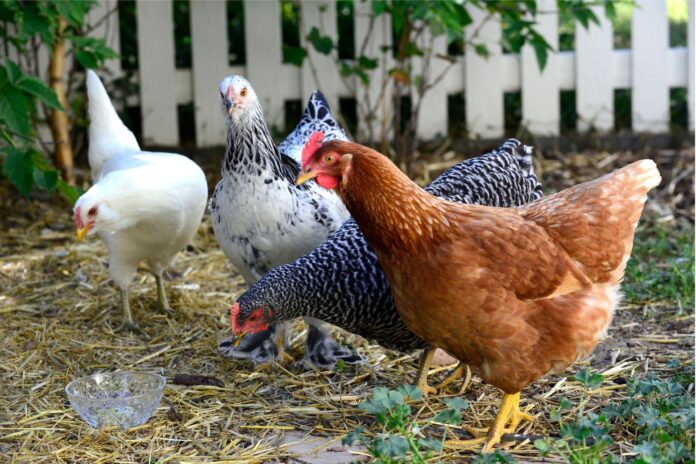
In this article, we delve into the fascinating realm of chicken feed, exploring the multitude of options available to ensure the well-being and happiness of our feathered friends.
With a focus on scientific, informative, and practical insights, we examine different types of chicken feed, essential nutrients for healthy hens, organic and non-GMO choices, supplements for enhancing egg quality, and feeding strategies for optimal hen health.
Join us as we navigate the vast and cluck-worthy world of poultry nutrition.
Different Types of Chicken Feed
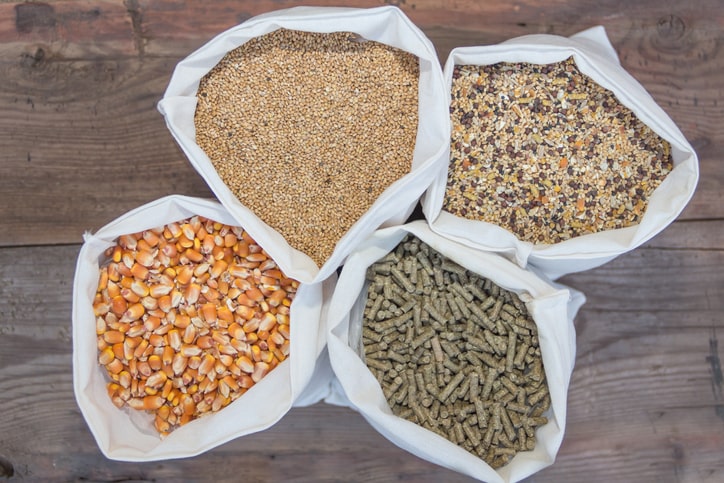
Different types of chicken feed are commonly classified based on their nutritional composition and are frequently available in the market.
When it comes to chicken feed, there are several options to consider, including commercial feeds, homegrown alternatives, and fermented feed.
Commercial feeds are widely available and formulated to meet the nutritional needs of chickens at different stages of growth. They are convenient and often come in pellet or crumble form.
On the other hand, homegrown alternatives offer a more natural approach to feeding chickens. They can include a variety of grains, legumes, and vegetables that are grown in the backyard or on a small farm.
Finally, fermented feed is gaining popularity due to its numerous benefits. Fermentation enhances nutrient availability, improves digestion, and boosts the immune system of chickens. It involves soaking the feed in water and allowing beneficial bacteria to ferment it, creating a probiotic-rich food source for the hens.
Incorporating homegrown alternatives and fermented feed into a chicken’s diet can provide additional health benefits and contribute to the overall well-being of the flock.
Essential Nutrients for Healthy Hens
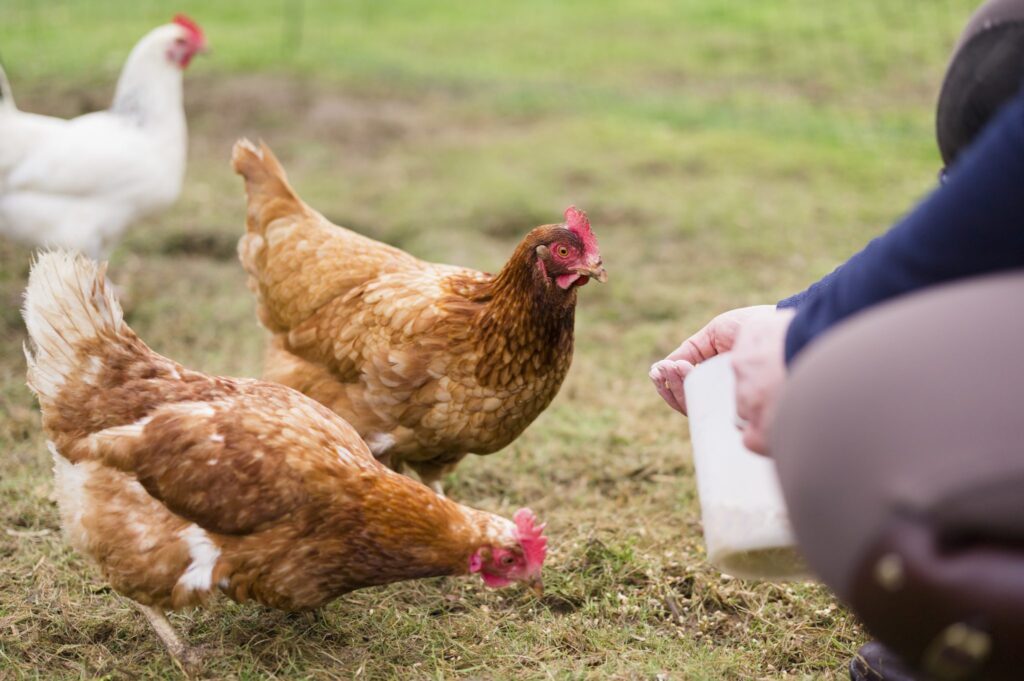
To maintain the health and well-being of hens, it is crucial to ensure they receive a balanced diet that provides essential nutrients for optimal growth and productivity.
Nutritional deficiencies can have a significant impact on egg production, leading to lower quality eggs or a decrease in egg laying altogether.
Hens require a range of nutrients, including protein, carbohydrates, fats, vitamins, and minerals, to support their overall health and egg production. A lack of these essential nutrients can result in poor shell quality, reduced egg size, or even infertility in hens.
In addition to a balanced diet, proper hydration is also essential for maintaining healthy hens. Water is necessary for various physiological processes, including digestion, nutrient absorption, and egg formation. Adequate access to clean, fresh water is vital to ensure optimal hydration and overall health in hens.
Organic and Non-GMO Options
When considering chicken feed options for happy hens, it is important to explore the benefits of organic and non-GMO choices.
Organic chicken feed is produced without the use of synthetic pesticides, fertilizers, or genetically modified organisms (GMOs). On the other hand, conventional chicken feed may contain GMOs and may be exposed to synthetic chemicals during production.
Choosing organic feed ensures that hens are not consuming potentially harmful substances and avoids the potential risks associated with GMOs. Non-GMO chicken feed, whether organic or conventional, provides a natural alternative to genetically modified ingredients.
Non-GMO feed is becoming increasingly popular as consumers prioritize natural and sustainable farming practices. By opting for organic and non-GMO feed options, poultry farmers can promote the health and well-being of their hens while also meeting the demand for high-quality, environmentally friendly products.
Supplements to Enhance Egg Quality
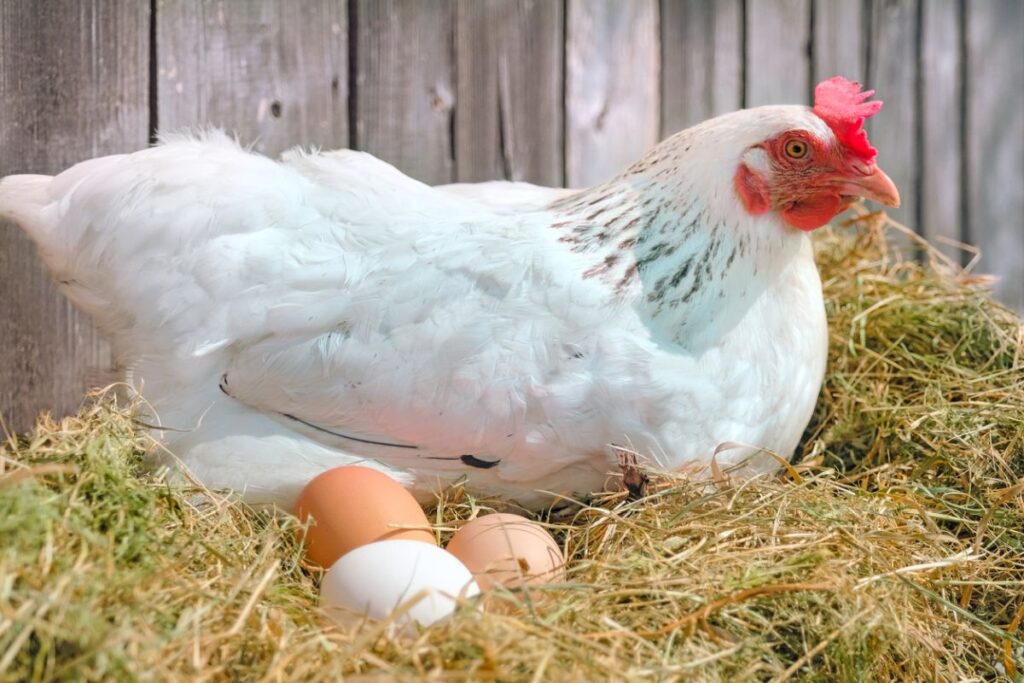
In the realm of enhancing egg quality, poultry farmers can consider incorporating supplements into their hens’ diets.
One important aspect of egg quality is eggshell strength, which is determined by the availability of certain nutrients.
To ensure optimal eggshell strength, it is crucial to address any nutritional deficiencies that may exist in the hens’ diet.
Supplements such as calcium, vitamin D, and phosphorus can play a significant role in improving eggshell quality.
Calcium is particularly important as it is the main component of eggshells.
Vitamin D aids in the absorption of calcium, while phosphorus contributes to the formation of strong eggshells.
Feeding Strategies for Optimal Hen Health
Implementing appropriate feeding strategies is essential for maintaining optimal health in hens. When it comes to feeding schedules for backyard chickens, it is recommended to provide a consistent routine.
Hens should be fed at the same time each day to establish a reliable feeding pattern. This helps to regulate their metabolism and digestion, promoting overall health and well-being.
In addition to feeding schedules, the impact of free-ranging on hen nutrition should also be considered. Free-ranging allows hens to forage for insects, worms, and vegetation, which can contribute to a more varied and nutritious diet.
However, it is important to ensure that the free-ranging area is safe and protected from predators.
Supplementing their diet with a balanced commercial feed can help ensure that they receive all the necessary nutrients, especially if their foraging opportunities are limited. By combining a consistent feeding schedule with the benefits of free-ranging, hens can enjoy optimal nutrition and good health.
Frequently Asked Questions
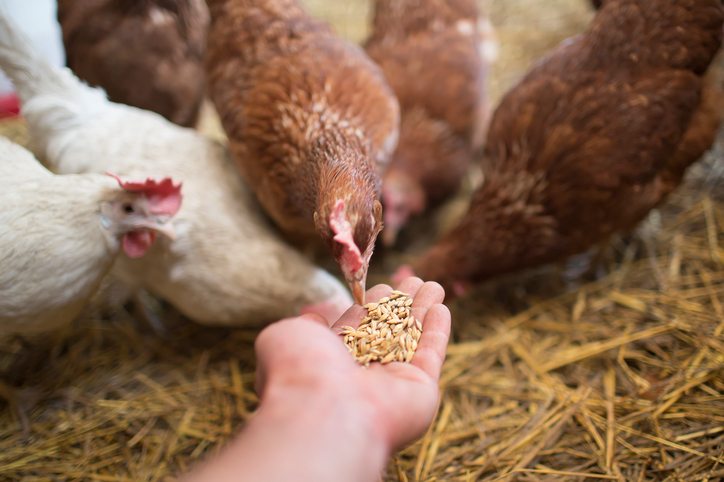
How Many Different Types of Chicken Feed Are Available in the Market?
There are numerous types of chicken feed available in the market, each offering unique nutritional content. When comparing organic and non-GMO chicken feed, it is important to consider the specific needs and preferences of the hens.
What Are the Specific Essential Nutrients That Are Necessary for a Healthy Hen’s Diet?
Specific essential nutrients for a healthy hen’s diet include protein, carbohydrates, fats, vitamins, minerals, and water. A balanced diet is crucial for hens as it promotes growth, egg production, and overall health.
Are There Any Differences in the Nutritional Content Between Organic and Non-Gmo Chicken Feed Options?
There is a difference in the nutritional content between organic and non-GMO chicken feed options. Organic feed is free from synthetic pesticides and genetically modified ingredients, which may result in better hens’ health and egg quality.
What Supplements Can Be Used to Enhance the Quality of Eggs Laid by Hens?
Supplement options for healthier eggs include omega-3 fatty acids, vitamin D, and calcium. These additives can enhance egg quality by improving shell strength, yolk color, and nutritional value. Incorporating them into chicken feed provides essential nutrients for hens.
Are There Any Specific Feeding Strategies That Can Be Followed to Ensure Optimal Health for Hens?
Feeding strategies for optimal health in hens are crucial for maintaining their overall well-being. The importance of balanced nutrition cannot be overstated, as it directly impacts the quality of eggs and the overall happiness of the hens.








